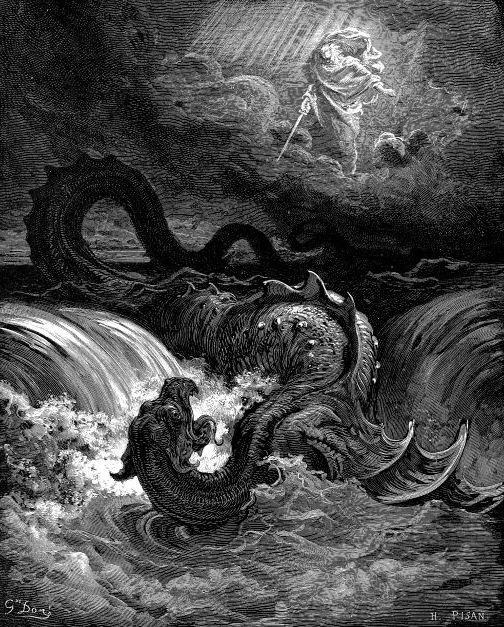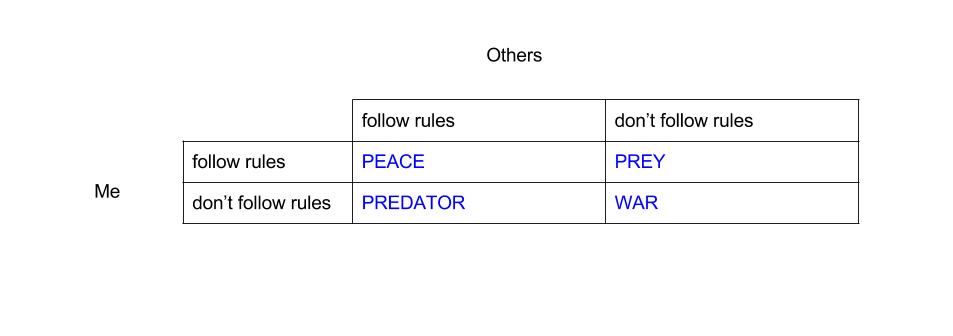I’m participating in the open online digital storytelling course called DS106, which is happening on a shortened, 7 week schedule until about mid-May. For the first week, we were asked (among other things that I didn’t have time to do because I’m still teaching right now) to think about the shapes of stories. Two things we could look at were a video in which Kurt Vonnegut explains some familiar story shapes, and a web page in which Kenn Adams talk about the idea of a “story spine.” We were asked to think about a story familiar to us in terms of these ideas.
In a course I’m teaching called Arts One (a team-taught, interdisciplinary course for first-year students at the University of British Columbia), we’re reading and discussing Chinua Achebe’s Things Fall Apart this upcoming week. So I figured I’d try to analyze this text using these two discussions of the shapes of stories.
Vonnegut’s story shapes
In this video by Vonnegut, several story arcs are described:
1. “Man in a hole”: someone starts of being above average in terms of good/bad fortune, then goes significantly downwards, then gets out of the hole by the end, back to approximately where s/he started.
2. “Boy meets girl”: someone starts off in a pretty average position of good/bad fortune, then finds something great or something amazing happens to him/her, then they lose it, then they get it back again (or something else that brings them back up).
3. Cinderella: someone starts off very low on the good/bad fortune scale, climbs upward, then falls down, then goes back up. In Cinderella’s case, she ends up with ultimate, off the scale happiness.
Of course, a pattern is easily recognized here: one somehow at some point goes downward in the good/bad fortune scale, and then goes back up. Maybe they go up before they go down, but regardless there is some downward movement and back upward movement.
Can we read Achebe’s Things Fall Apart as fitting one of these shapes? I don’t think so, because it has more of a tragic story shape. To me, that means that someone starts off pretty high up on the good/bad fortune scale, or starts off middling and moves up, and then goes downward…and the story ends. That’s pretty much what happens here. Of course, perhaps that’s one of Vonnegut’s story shapes too, it’s just that we don’t see the whole talk from which this video is taken. He’s only talking about the “comedies” (happy endings) rather than the “tragedies.” This seems pretty clear a tragedy.
At the beginning of the story, Okonkwo is said already to be famous as a wrestler. He has excelled in life far beyond his father, Unoka, who was “lazy and improvident and quite incapable of thinking about tomorrow” (4). He is also mired in debt, and his wives and children “barely had enough to eat” (5). Onkonkwo is ashamed of his father and has done much better for himself by the beginning of the novel. He is not only renowned as a wrestler, he has also “shown incredible prowess in two inter-tribal wars,” has “two barns full of yams,” has just married his third wife, and has taken two titles (8). He starts off in a very good position in his society.
Things start going downhill for him after he takes part in killing a boy who has lived with him for several years. Ikemefuna was sent to live in Okonkwo’s village as part of a settlement between clans, when another clan murdered a girl of Okonkwo’s clan. Ikemefuna lived in Okonkwo’s household for several years, when an oracle decrees that he must be killed. An elder tells Okonkwo not to participate in the killing (57), but he ends up doing so when Ikemefuna runs to him after someone else strikes him first, and Okonkwo, fearing “being thought weak,” strikes him as well and kills him (61).
Things start going downhill after this. During a funeral ceremony for one of the men of the village, Okonkwo’s gun accidentally goes off and kills the 16 year old son of the dead man (124). He has to leave the clan for seven years. He goes back to the village of his mother and works there during that time, and is upset because he is not rising higher in his clan like he had hoped. During this time missionaries come to his old village and the one he is living in as well, and he gets the devastating news that one of his sons has joined the new religion.
When at the end of his seven years of exile Okonkwo returns to his village, he finds that the clan is broken apart, with some people going over to the new religion and a new rule of law and court system run by the missionaries. Okonkwo’s full downfall comes when he kills one of the new converts who is enforcing the laws of the missionaries, hoping that the rest of his clan will join him in rebellion against them. But the clan does not act; instead, they ask why Okonkwo killed the man (204-205). The next we hear about Okonkwo his body is dangling from a tree, after he has chosen to hang himself.
This story starts from a place of relative prosperity, and the protagonist simply goes downhill. We might even think about him having a character flaw, a “hamartia” in the ancient Greek language of tragedy, that leads him to this downfall. In Okonkwo’s case it could be his temper, his ruling of his household with a heavy hand (13). He beats one of his wives during the “Week of Peace” (29), which is against the rules of their religion, and even shoots at one of his wives at one point (39). It could also be his overbearing fear of weakness and effeminateness, which is what leads him to kill Ikemefuna. But then again, this could just be me approaching the story from my 21st century, North American values.
Kenn Adams and the story spine
According to this post, the story spine is a way to come up with ideas for a well-crafted story. It is just the backbone, just the basics, on which other elements of the story can be hung. It goes something like this:
1. The beginning: establishes the main character’s world and everyday routine. “Once upon a time…” and “Every day…”
2. The event: but one day, the routine is broken.
3. The middle: the consequences of breaking the routine. “Because of that…” and “because of that…” and “because of that…”
4. The climax: “until finally…” the character “embarks on success or failure.”
5. The end: success or failure occurs, and “a new routine is established”
This fits quite well with Achebe’s novel. The first few chapters establish Okonkwo’s world, the daily routines, the rituals, the seasonal festivals, and more. Then one day he kills Ikemefuna. Or maybe the event in this story should be thought of as accidentally killing the son of a man during that man’s funeral, since that really breaks up his routine: because of that, Okonkwo has to go into exile. Because of that he does not prosper in his clan as he had planned.
Then there was also the arrival of the missionaries, which doesn’t have any direct causal connection to what Okonkwo has done (no “because of that” here), but which ends up “breaking the routine” in an entirely different and much more destructive way. Because of the missionaries’ arrival, Okonkwo’s son ends up estranged from his father. And the missionaries end up jailing Okonkwo and others at one point until the village pays a fine. And then on top of that there was the killing of the religious spirit by a convert, and all of this seems to lead to the climax: Okonkwo killing one of the converts and hoping the rest of the clan will join him in a war. But he has misread them; they are as weak as his son, and he cannot face his life anymore. The end: failure.
This is, at least, how I’m reading the text before hearing one of our teaching team lecture on it tomorrow…maybe I’ll change my mind about the story and its shape later.
Concluding thoughts
This was a really interesting exercise–I discovered that there are certain shapes of stories that are common, that you can find within many stories, such as the up-down movement of fortune or the story spine. I can see how practice in finding these sorts of shapes in stories might help one better construct stories oneself. Interesting that there are some very regular shapes that work, that are repeated over and over.
When I started doing ds106 about a year ago (this is my third iteration already!) I was convinced I had no artistic talent. That myth got busted very quickly. I’m still pretty convinced I don’t know how to create a fictional story that works. Most of my ds106 artworks aren’t really full narrative stories, but images, animated gifs, short videos that don’t really fit any of these kinds of shapes. But maybe it’s time to start busting the idea that I’m just no good at telling stories like this and that it’s some kind of mysterious power that some people have and others don’t. Maybe there’s some kind of basic rules or shapes that one can start with and then fill out. Hmmm… for now, I think I’ll just stick to finding those shapes in others’ stories and slowly work towards maybe one tell telling my own.
Work cited
Achebe, Chinua. Things Fall Apart. Anchor Canada, 2009.


